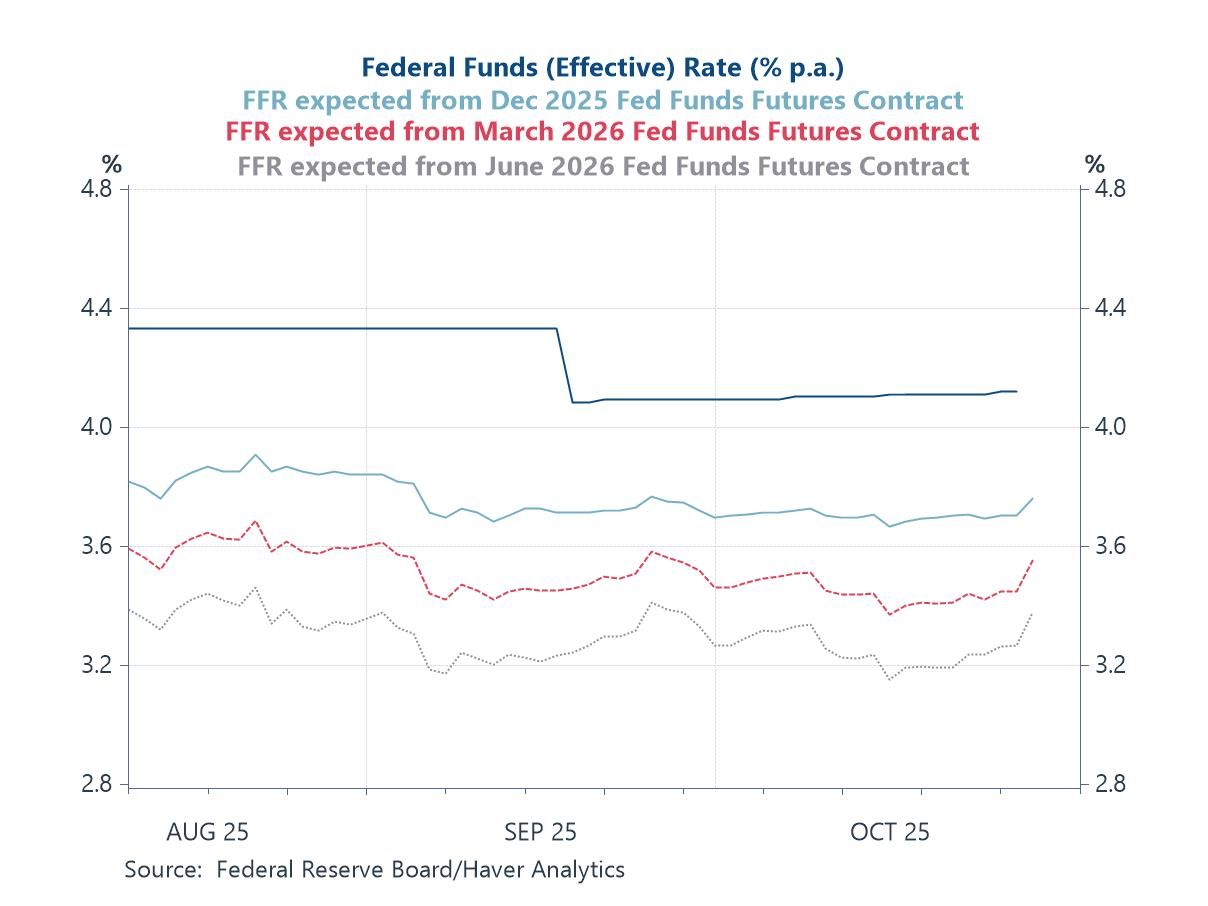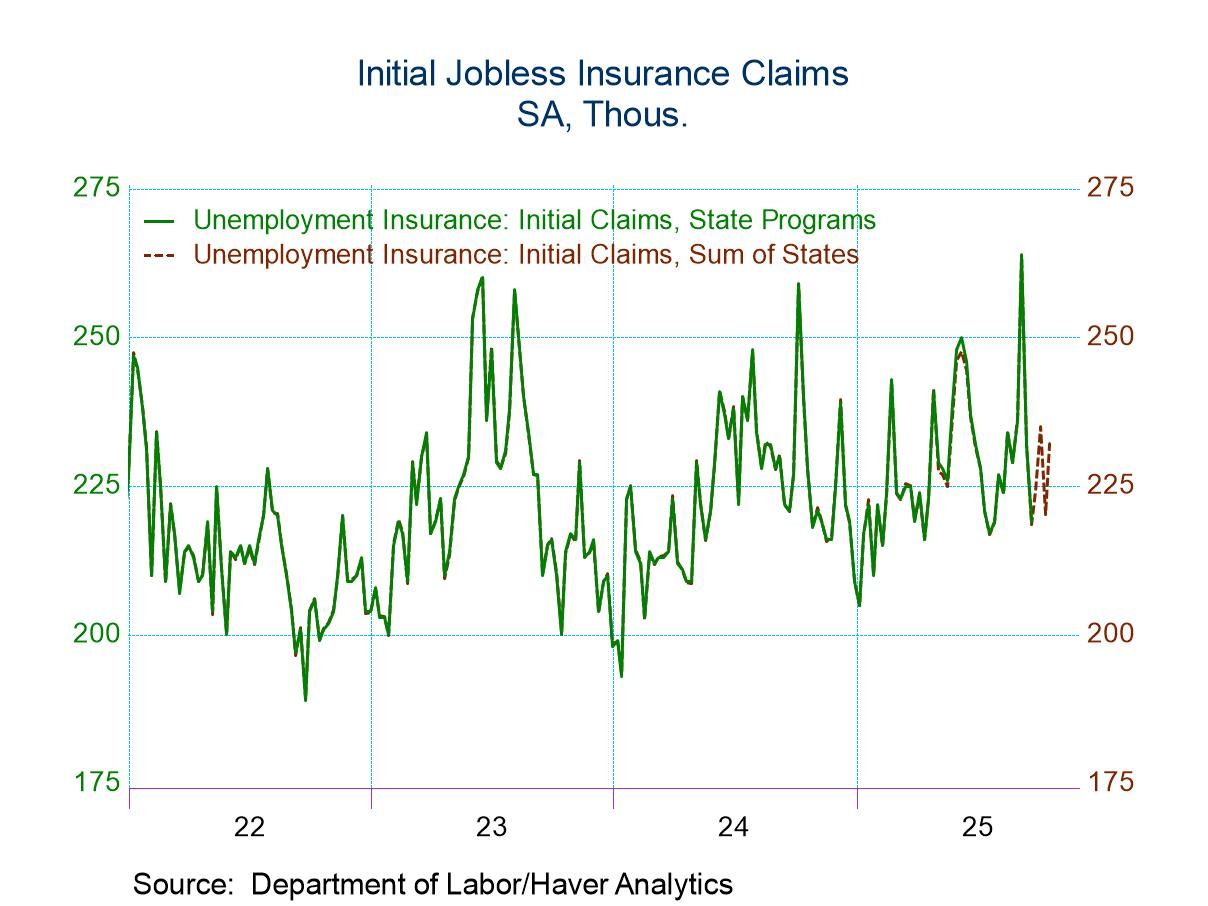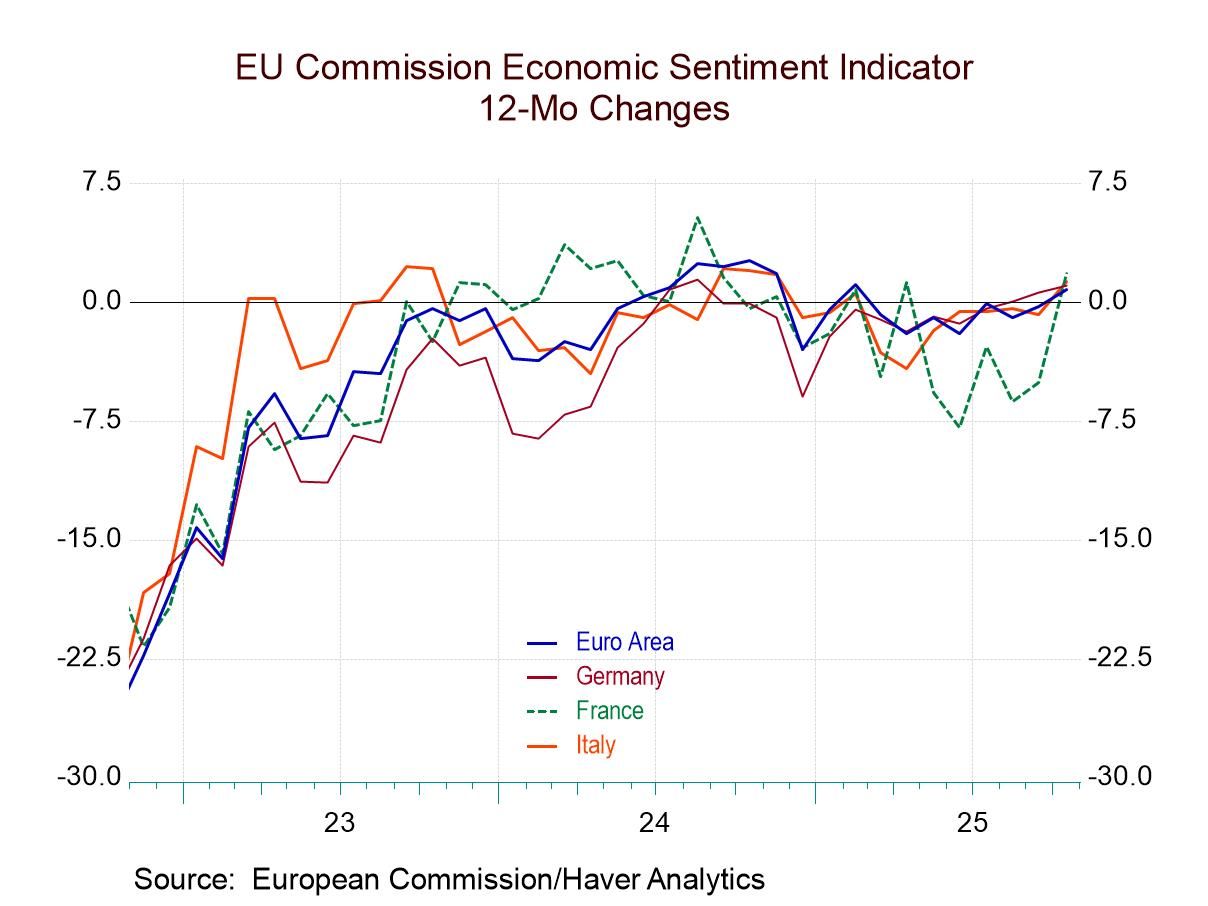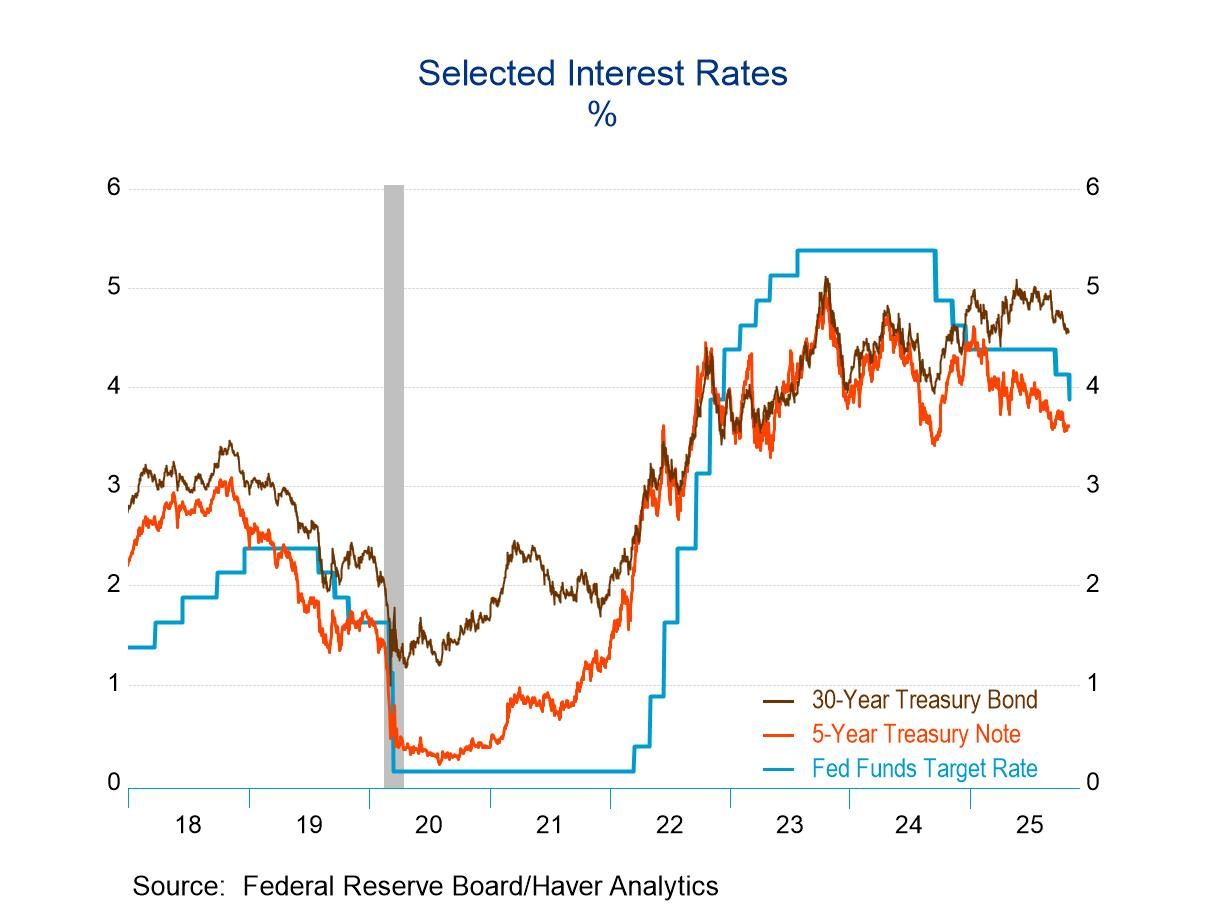 Global| Jun 26 2009
Global| Jun 26 2009French Confidence, Still In A Deep Pit, Rises
Summary
Consumer confidence in France has risen in three of the last for months with one month marking a pause in the rising trend. French confidence hit its low point in July of 2008 at a level of -48. Since then although the recession has [...]
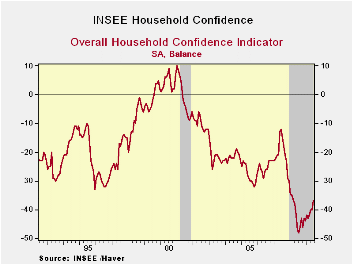
Consumer confidence in France has risen in three of the last
for months with one month marking a pause in the rising trend. French
confidence hit its low point in July of 2008 at a level of -48. Since
then although the recession has worsen in most of the world, French
consumer confidence has embarked on a rising trend that has extended
its trend rise during this whole period of economic malaise.
This is probably one reason that France has weathered the
recession better than other European countries. Another reason being,
of course, that French fiscal spending has been greater, and today we
are hearing some misgivings about the size of the French fiscal
deficit. French Prime Minister Francois Fillon warned on Friday that
budget deficits "could compromise even the survival of our economic
systems if we do not manage to control them."
Confidence is still in the lower 19% of its range since 1990.
By count, confidence has been weaker than this only 6.4% of the time.
So the range reading is more comforting than it should be.
Consumer concern about unemployment is the highest it has
been. Still the outlook for living standards in the 12 months ahead is
in its 17th range percentile compared to a standing of 9% over the past
21 months. Both figures however have been worse only 5.6% of the time.
In that sense there is not improvement in the outlook.
Only about 25% say the time is right for a major purchases;
the response is worse than that only 15% of the time.
On balance the good news is that the French figures show some
improvement. But let’s not kid ourselves; the readings are still
painfully weak. Europe’s leaders should not be counting their chickens
before they are hatched. There is still a lot of risk out there. In
response to a question about European recovery, European Commissioner
for Economic and Monetary Affairs Joaquin Almunia said Friday. "We are
not there. The U.S. Economy is starting to give signals that it is near
to or at the beginning of a recovery." Even though the US is in the
lead no one is ‘there’ yet. And there is no room for complacency. Maybe
the US congress should be more concerned with doing things to aid
recovery than to find itself a scapegoat for an economy gone bad and
stimulus monies (it approved) less than well spent.
| INSEE Household Monthly Survey | ||||||||||
|---|---|---|---|---|---|---|---|---|---|---|
| Since Jan 1990 | Since Jan 1990 | |||||||||
| Jun 09 |
May 09 |
Apr 09 |
Mar -09 |
Percentile | Rank % | Max | Min | Range | Mean | |
| Household Confidence | -37 | -40 | -40 | -42 | 19.0 | 6.4 | 10 | -48 | 58 | -19 |
| Living Standards | ||||||||||
| Past 12 Mos | -73 | -75 | -75 | -76 | 9.0 | 5.6 | 18 | -82 | 100 | -40 |
| Next 12-Mos | -47 | -50 | -53 | -58 | 17.1 | 5.6 | 16 | -60 | 76 | -21 |
| Unemployment: Next 12 | 96 | 89 | 84 | 79 | 100.0 | 99.6 | 96 | -37 | 133 | 31 |
| Price Developments | ||||||||||
| Past 12Mo | -24 | -18 | -12 | -7 | 27.3 | 48.3 | 64 | -57 | 121 | -16 |
| Next 12-Mos | -53 | -55 | -53 | -51 | 7.5 | 3.4 | 33 | -60 | 93 | -34 |
| Savings | ||||||||||
| Favorable to save | 9 | 7 | 10 | 14 | 33.3 | 7.3 | 39 | -6 | 45 | 22 |
| Ability to save Next 12 | -18 | -20 | -15 | -13 | 17.2 | 6.4 | 6 | -23 | 29 | -9 |
| Spending | ||||||||||
| Favorable for major purchase | -27 | -28 | -30 | -29 | 25.9 | 15.4 | 16 | -42 | 58 | -14 |
| Financial Situation | ||||||||||
| Current | 12 | 12 | 12 | 12 | 42.9 | 57.3 | 24 | 3 | 21 | 12 |
| Past 12 MOs | -23 | -28 | -26 | -28 | 43.8 | 17.9 | -5 | -37 | 32 | -17 |
| Next 12-Mos | -13 | -16 | -17 | -20 | 31.4 | 8.1 | 11 | -24 | 35 | -1 |
| Number of observations in the period 234 | ||||||||||
Robert Brusca
AuthorMore in Author Profile »Robert A. Brusca is Chief Economist of Fact and Opinion Economics, a consulting firm he founded in Manhattan. He has been an economist on Wall Street for over 25 years. He has visited central banking and large institutional clients in over 30 countries in his career as an economist. Mr. Brusca was a Divisional Research Chief at the Federal Reserve Bank of NY (Chief of the International Financial markets Division), a Fed Watcher at Irving Trust and Chief Economist at Nikko Securities International. He is widely quoted and appears in various media. Mr. Brusca holds an MA and Ph.D. in economics from Michigan State University and a BA in Economics from the University of Michigan. His research pursues his strong interests in non aligned policy economics as well as international economics. FAO Economics’ research targets investors to assist them in making better investment decisions in stocks, bonds and in a variety of international assets. The company does not manage money and has no conflicts in giving economic advice.



